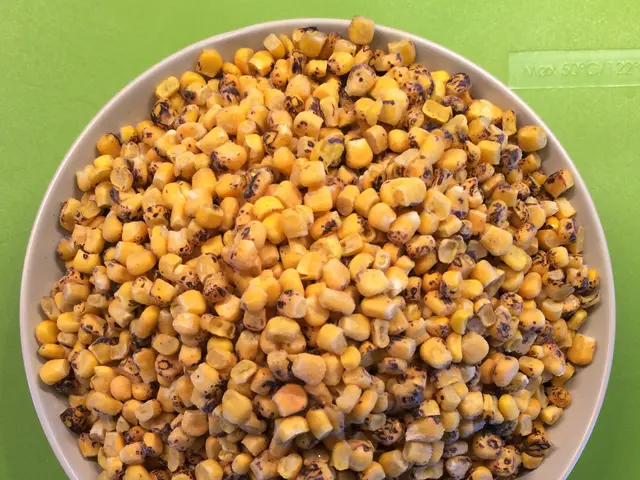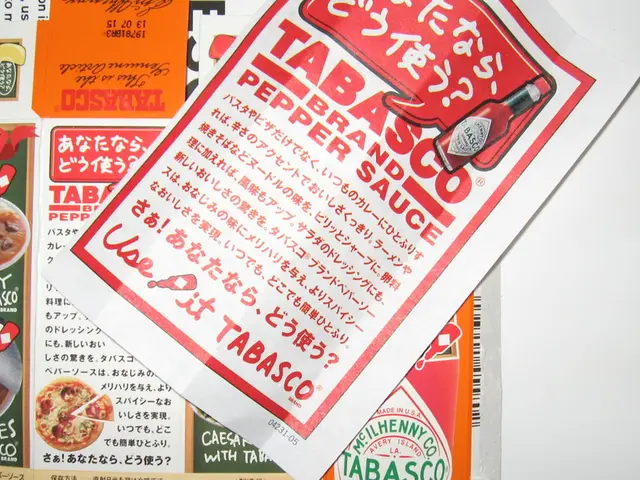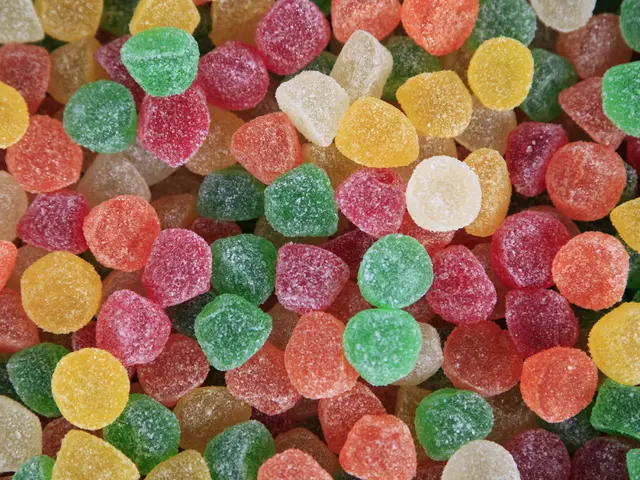Distinguishing Fermentation from Pickling: A Closer Look
Ready to keep your produce fresh all year round? Here's the lowdown on canning and fermentation, two popular methods for food preservation. Let's sink our teeth into it!
What's the Dish on Canning?
Canning is like giving your food a fancy hot tub! Place your food in jars, submerge them in boiling water (or an autoclave for certain linchpins like meat), and voilà - you've done a number on those pesky microorganisms, creating a sterile environment for your veggies and fruit to chill at room temperature.
How's Fermentation Like a Wild Rave for Food?
Fermentation's your party animal for food preservation! It harnesses the power of nature's acid, salt, friendly bacteria, and the absence of oxygen to keep things safe and classy without destroying them like canning does. Say hello to probiotics and a deeper, tangier flavor profile!
Can We Compare and Contrast, Please?
Canning's a more rigorous process with several steps, while fermentation has you covered with next-to-none (although it still requires some effort). In terms of nutritional value, fermentation holds the top spot as it retains more nutrients, unlike canning that reduces nutrients during the heating process. Flavor-wise, fermented food changes over time, offering a unique complexity, while canning preserves taste but may cause some loss of flavor. Texture-wise, veggies stay crunchier with canning, while lacto-fermented options tend to soften over time.
Which Is Safer?
When canning low-acid foods, there's a risk of botulism, an essential question marker. But don't worry - fermentation is safe because there's no risk of contamination by harmful organisms due to the acidic environment and beneficial microorganisms. Simple!
Which Lasts Longer?
Both canning and fermentation provide fantastic preservation over time. Canned food can last more than a year, while lacto-fermented products change flavors over time and should be consumed after opening.
Equipment for the Job
Canning calls for several specialized pieces of equipment, while lacto-fermentation requires only a container and weight to keep vegetables submerged. Fret not, you probably already have the tools you need to get started with lacto-fermentation!
Wrap It Up
So, which one's best for you? Depends on ya! Canning shines with its ability to preserve flavors and textures, while fermentation transforms food into living, probiotic-rich, and flavorful delights. Get your hands dirty with our recommended equipment, and brew up a storm with lacto-fermentations today!
- For food preservation, you can embrace 'science' as you experiment with canning techniques, transforming your fruits and vegetables into long-lasting delights without losing their original taste and texture.
- If you're interested in 'health-and-wellness', consider exploring the art of 'fermentation', where 'food-and-drink' items are preserved using natural acid, salt, friendly bacteria, and oxygen-free conditions, offering 'healthy-cooking' alternatives that are rich in probiotics.
- Balance your 'lifestyle' with a fusion of 'fitness-and-exercise', 'cooking', and 'healthy-cooking' by incorporating both 'canning' and 'fermentation' into your meal preparation routines, ensuring you maintain a fresh supply of nutrient-rich ingredients all year round.








